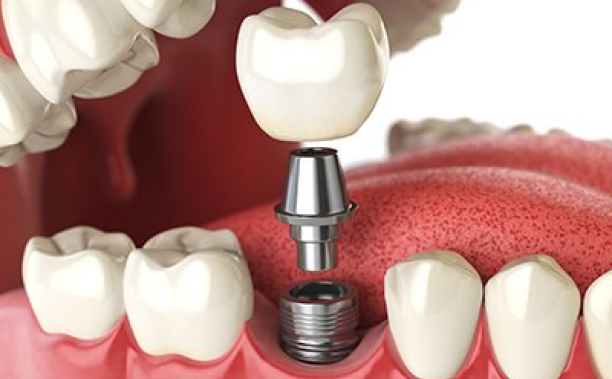
Dental Implants
in Portland, OR
Are you embarrassed to laugh or smile around others due to one or more missing teeth? At Trillium Dental, we love helping patients restore the health and appearance of their smiles as well as their confidence. If you are interested in learning more about dental implants and whether or not you may be a candidate, please get in touch with our Portland dental team, and we will be glad to assist you.


What are the pros and cons of dental implants?
Dental implants are a durable, natural-looking solution for missing teeth. They help preserve jawbone health, improve chewing, and restore confidence in your smile. Implants are long-lasting and don’t rely on neighboring teeth for support, unlike bridges. However, implants also require surgery and a longer healing period. They can be more expensive upfront than other options, and some patients may need additional procedures, like bone grafting, before implantation. Despite some downsides, they are often the preferred choice for replacing teeth.

What is the procedure for dental implants?
The dental implant process typically involves several steps. First, the dentist surgically places a titanium implant into the patient’s jawbone, which fuses with the bone over a few months. Once healed, an abutment is attached to the implant, serving as a connector. Finally, a custom crown is secured to the abutment, completing the restoration. The entire process may take several months, but it provides a long-lasting, stable solution for missing teeth.

How long do dental implants last?
With proper care, dental implants can last 20 years or more, often a lifetime. Factors like oral hygiene, regular dental visits, and avoiding habits like smoking and teeth grinding can affect their longevity. The implant itself is made of durable titanium, but the crown may need replacement after 10-15 years due to normal wear and tear. Routine maintenance is key to extending the life of your implants.


Does insurance cover dental implants?
Insurance coverage for dental implants varies by provider and plan. Some insurance plans cover most or all of the procedure, especially if it’s deemed medically necessary, while others only cover alternatives like dentures. We recommend checking with your insurance provider to understand your specific coverage and reviewing your additional financial options as well.
Contact Us